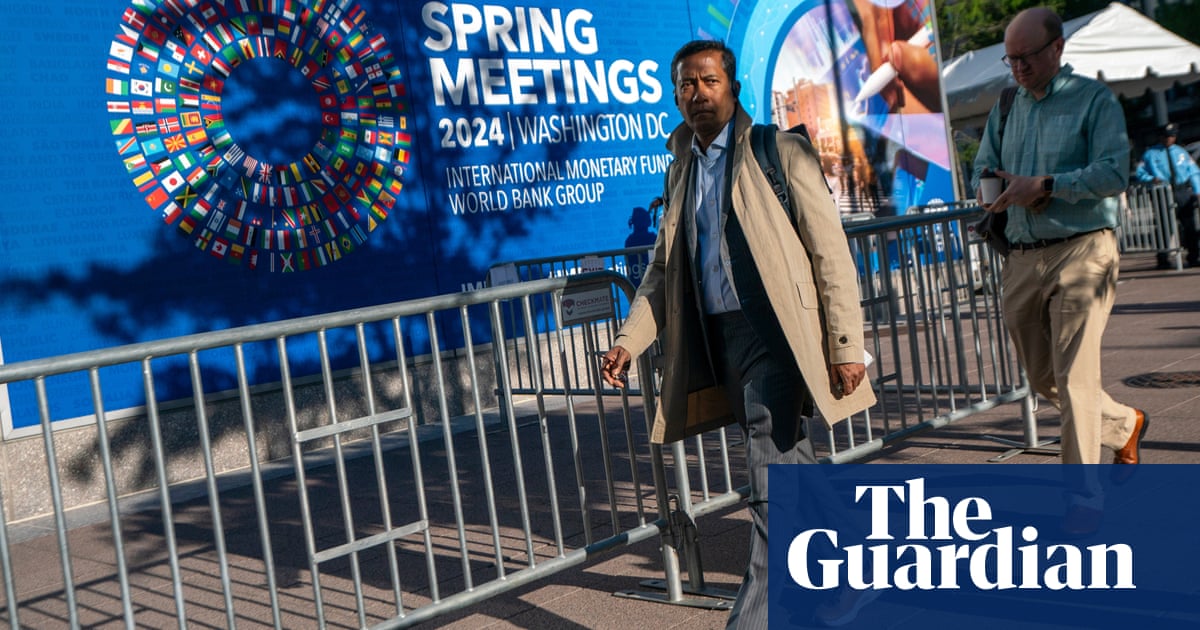
Boris Johnson must push rich countries meeting in Cornwall in June to come up with tens of billions of dollars more in aid for poor countries to deal with climate breakdown, or face the failure of vital UN climate talks to be hosted by the UK in Glasgow in November, according to leading climate experts.
The UK holds the presidency this year both of the annual meeting of the G7 group of the world’s economic superpowers, and of the Cop26 climate summit.
The question of how much rich countries are prepared to stump up to help the developing world cut greenhouse gas emissions and cope with the impacts of the climate crisis will be decisive in gaining poor countries’ backing at Cop26, say leading ex-diplomats and advisers.
So far, rich countries’ commitments have fallen far short of what is needed. At a summit last week hosted by the US president, Joe Biden, several rich countries strengthened their targets on cutting emissions, but only the US came up with fresh commitments on climate finance.
John Podesta, founder of the Center for American Progress thinktank, former adviser to Barack Obama and to Hillary Clinton’s presidential campaign, said: “I was expecting a bit more from [the White House] summit on that [the finance] question. The US proposal was good but a bit weak. It needs to be better.”
That leaves the G7 meeting in Cornwall as one of only a handful of opportunities for rich countries to come up with higher commitments on spending, prior to the Cop26 summit in Glasgow this November.
Laurence Tubiana, chief executive of the European Climate Foundation and the former French diplomat who led the country’s negotiators at the 2015 Paris talks, said: “The cost of access to capital is still very high for developing countries. It will be impossible for them to make the transition [to low-carbon economies] without finance to make this realistic. We are not there yet.”
Christiana Figueres, founding partner of Global Optimism and the former UN climate chief who oversaw the Paris agreement, said poor countries urgently needed help: “So many are still struggling with Covid-19 hardship. There has to be a big push for the G7 now, and the G20, on a finance package.”
Figueres said a pledge from financial institutions with $70tn (£50tn) under management to ensure their investments were in line with long-term climate goals was “exceedingly good news” but that rich countries must still make good on an unkept promise made in 2009 to provide $100bn a year in public and private finance to developing countries by 2020.
Tasneem Essop, executive director of Climate Action Network International, said: “What we need immediately and at the G7 is for rich countries to pledge to at least double their finance.”
The UN has estimated that poor countries may need more than $90tn in investment by the end of the decade, to put them on a path to zero emissions by 2050 and to make their infrastructure more resilient to the impacts of extreme weather. Much of this will take the form of redirecting existing and planned investments to green ends, for instance by directing spending on energy towards renewable generation instead of coal and gas, or by investing in more climate-friendly agriculture instead of current methods.
Private sector cash can provide some of the investment needed, for instance in energy generation, but much of this is directed at countries that already have a strong and growing industrial base. Some aspects of climate finance, particularly in the poorest countries, are currently much harder to fund. Adapting to the impacts of extreme weather saves lives and livelihoods, but compared to investments in energy or industry the returns are less obvious and spread across populations.
Campaigners are also concerned that too much of the financial assistance pledged by rich countries comes with strings attached, in the form of loans or guarantees that need to be repaid or on which interest must be paid, rather than in the form of grants. Poor countries are also struggling with record amounts of debt, and their cost of borrowing has been increased further by the Covid pandemic.
Essop drew a comparison with poor countries’ struggles to access vaccines for Covid-19 in recent months. “Rich nations are taking care of their own without any idea of looking outward. Vaccine solidarity and climate solidarity are really important,” she said.
Tubiana said rich countries should ensure poor countries could gain access to Covid-19 vaccines before the Cop26 summit: “Vaccine solidarity will be a condition of success at Glasgow.”












